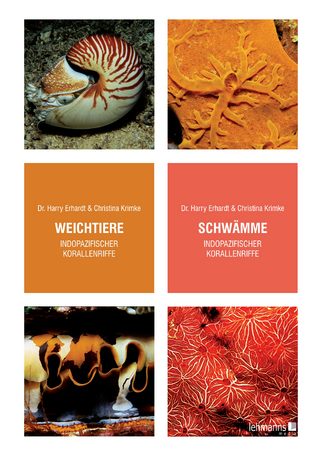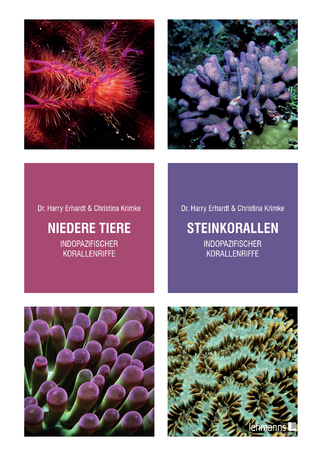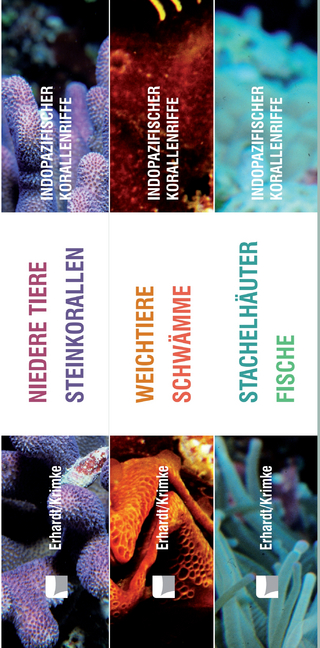
Understanding Marine Biodiversity
Seiten
1995
National Academies Press (Verlag)
978-0-309-08397-3 (ISBN)
National Academies Press (Verlag)
978-0-309-08397-3 (ISBN)
The diversity of marine life is affected by fishery operations, chemical pollution and eutrophication, alteration of physical habitat, exotic species invasion, and effects of other human activities. This book illustrates the undescribed marine biodiversity, explores critical environmental issues, and identifies a series of key research questions.
The diversity of marine life is being affected dramatically by fishery operations, chemical pollution and eutrophication, alteration of physical habitat, exotic species invasion, and effects of other human activities. Effective solutions will require an expanded understanding of the patterns and processes that control the diversity of life in the sea.
Understanding Marine Biodiversity outlines the current state of our knowledge, and propose research agenda on marine biological diversity. This agenda represents a fundamental change in studying the ocean—emphasizing regional research across a range of space and time scales, enhancing the interface between taxonomy and ecology, and linking oceanographic and ecological approaches.
Highlighted with examples and brief case studies, this volume illustrates the depth and breadth of undescribed marine biodiversity, explores critical environmental issues, advocates the use of regionally defined model systems, and identifies a series of key biodiversity research questions. The authors examine the utility of various research approaches—theory and modeling, retrospective analysis, integration of biotic and oceanographic surveys—and review recent advances in molecular genetics, instrumentation, and sampling techniques applicable to the research agenda. Throughout the book the critical role of taxonomy is emphasized.
Informative to the scientist and accessible to the policymaker, Understanding Marine Biodiversity will be of specific interest to marine biologists, ecologists, oceanographers, and research administrators, and to government agencies responsible for utilizing, managing, and protecting the oceans.
Table of Contents
FRONT MATTER
EXECUTIVE SUMMARY
1 INTRODUCTION
2 LINKING PATTERN TO PROCESS: A REGIONAL-SCALE APPROACH
3 BIODIVERSITY CHANGES DUE TO ANTHROPOGENIC EFFECTS: CRITICAL ENVIRONMENTAL ISSUES
4 REGIONALLY DEFINED MODEL SYSTEMS: EXAMPLES OF HABITATS
5 THE CRITICAL ROLE OF TAXONOMY
6 BIODIVERSITY RESEARCH PROGRAM
7 SUMMARY
REFERENCES
APPENDIXES
INDEX
The diversity of marine life is being affected dramatically by fishery operations, chemical pollution and eutrophication, alteration of physical habitat, exotic species invasion, and effects of other human activities. Effective solutions will require an expanded understanding of the patterns and processes that control the diversity of life in the sea.
Understanding Marine Biodiversity outlines the current state of our knowledge, and propose research agenda on marine biological diversity. This agenda represents a fundamental change in studying the ocean—emphasizing regional research across a range of space and time scales, enhancing the interface between taxonomy and ecology, and linking oceanographic and ecological approaches.
Highlighted with examples and brief case studies, this volume illustrates the depth and breadth of undescribed marine biodiversity, explores critical environmental issues, advocates the use of regionally defined model systems, and identifies a series of key biodiversity research questions. The authors examine the utility of various research approaches—theory and modeling, retrospective analysis, integration of biotic and oceanographic surveys—and review recent advances in molecular genetics, instrumentation, and sampling techniques applicable to the research agenda. Throughout the book the critical role of taxonomy is emphasized.
Informative to the scientist and accessible to the policymaker, Understanding Marine Biodiversity will be of specific interest to marine biologists, ecologists, oceanographers, and research administrators, and to government agencies responsible for utilizing, managing, and protecting the oceans.
Table of Contents
FRONT MATTER
EXECUTIVE SUMMARY
1 INTRODUCTION
2 LINKING PATTERN TO PROCESS: A REGIONAL-SCALE APPROACH
3 BIODIVERSITY CHANGES DUE TO ANTHROPOGENIC EFFECTS: CRITICAL ENVIRONMENTAL ISSUES
4 REGIONALLY DEFINED MODEL SYSTEMS: EXAMPLES OF HABITATS
5 THE CRITICAL ROLE OF TAXONOMY
6 BIODIVERSITY RESEARCH PROGRAM
7 SUMMARY
REFERENCES
APPENDIXES
INDEX
Committee on Biological Diversity in Marine Systems, National Research Council
| Erscheint lt. Verlag | 24.3.1995 |
|---|---|
| Verlagsort | Washington |
| Sprache | englisch |
| Maße | 152 x 229 mm |
| Themenwelt | Naturwissenschaften ► Biologie ► Limnologie / Meeresbiologie |
| Technik ► Umwelttechnik / Biotechnologie | |
| ISBN-10 | 0-309-08397-4 / 0309083974 |
| ISBN-13 | 978-0-309-08397-3 / 9780309083973 |
| Zustand | Neuware |
| Informationen gemäß Produktsicherheitsverordnung (GPSR) | |
| Haben Sie eine Frage zum Produkt? |
Mehr entdecken
aus dem Bereich
aus dem Bereich
indopazifischer Korallenriffe
Buch | Hardcover (2025)
Lehmanns Media (Verlag)
CHF 104,95
indopazifischer Korallenriffe
Buch | Hardcover (2025)
Lehmanns Media (Verlag)
CHF 104,95
Buch | Hardcover (2025)
Lehmanns Media (Verlag)
CHF 279,90


